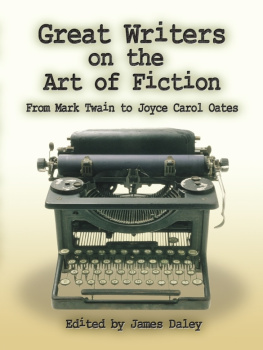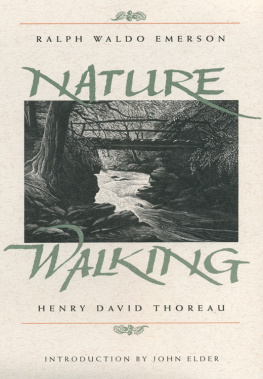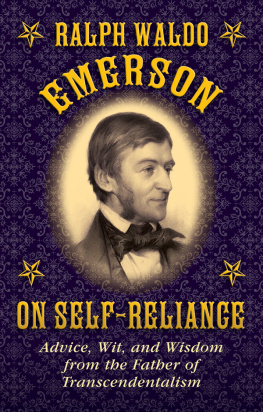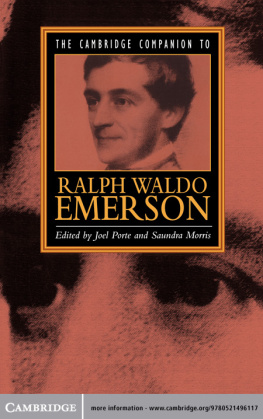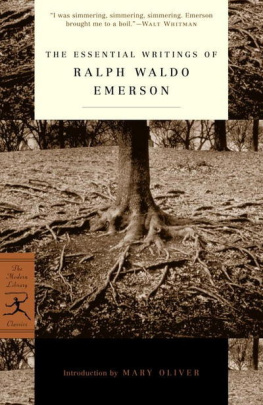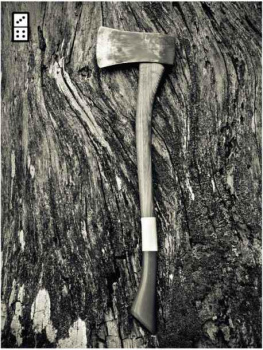Rollo Walter Brown - The Writers Art: By Those Who Have Practiced It
Here you can read online Rollo Walter Brown - The Writers Art: By Those Who Have Practiced It full text of the book (entire story) in english for free. Download pdf and epub, get meaning, cover and reviews about this ebook. year: 2011, publisher: Barnes & Noble, genre: Science. Description of the work, (preface) as well as reviews are available. Best literature library LitArk.com created for fans of good reading and offers a wide selection of genres:
Romance novel
Science fiction
Adventure
Detective
Science
History
Home and family
Prose
Art
Politics
Computer
Non-fiction
Religion
Business
Children
Humor
Choose a favorite category and find really read worthwhile books. Enjoy immersion in the world of imagination, feel the emotions of the characters or learn something new for yourself, make an fascinating discovery.
- Book:The Writers Art: By Those Who Have Practiced It
- Author:
- Publisher:Barnes & Noble
- Genre:
- Year:2011
- Rating:5 / 5
- Favourites:Add to favourites
- Your mark:
- 100
- 1
- 2
- 3
- 4
- 5
The Writers Art: By Those Who Have Practiced It: summary, description and annotation
We offer to read an annotation, description, summary or preface (depends on what the author of the book "The Writers Art: By Those Who Have Practiced It" wrote himself). If you haven't found the necessary information about the book — write in the comments, we will try to find it.
The Writers Art: By Those Who Have Practiced It — read online for free the complete book (whole text) full work
Below is the text of the book, divided by pages. System saving the place of the last page read, allows you to conveniently read the book "The Writers Art: By Those Who Have Practiced It" online for free, without having to search again every time where you left off. Put a bookmark, and you can go to the page where you finished reading at any time.
Font size:
Interval:
Bookmark:
By Those Who Have Practiced It
ROLLO WALTER BROWN

This 2011 edition published by Barnes & Noble, Inc.
All rights reserved. No part of this publication may be reproduced, stored in a retrieval system, or transmitted, in any form or by any means, electronic, mechanical, photocopying, recording, or otherwise, without prior written permission from the publisher.
Barnes & Noble, Inc.
122 Fifth Avenue
New York, NY 10011
ISBN: 978-1-4114-5432-3
PREFACE
T HE underlying idea of this volume originated several years ago in a period of very pleasant collaboration with Professor N. W. Barnes, now of the University of Chicago. In 191112 when we were completing The Art of Writing English we decided to publish, as a companion volume to the college textbook, a book of prose readings made up of what writers themselves had said about writing. Before we had brought the material together, however, my own interests drew me to another task, and Professor Barnes was called to a special field where matters of immediate import have ever since claimed his attention. Recently when I turned to the volume to bring it to completion, I found that in certain respects I had departed from our original purpose. I wish, nevertheless, to make grateful acknowledgment of all that Professor Barnes contributed, and to express my appreciation of the eager sympathy with which he has followed the book into its present form.
I wish also to express my thanks to Professor G. L. Kittredge, of Harvard University, Professor F. W. Chandler, of the University of Cincinnati, and Mr. Harold Hawk for valuable suggestions; to Professor F. N. Scott, of the University of Michigan, for his kindness in tendering me the fruits of his painstaking correction of Lewes's Principles of Success in Literature; to a number of publishers, specifically mentioned later, for the privilege of using copyrighted material; to Professor G. B. Woods and Mr. Allen Crafton, of Carleton College, for their aid in the reading of proofs; and finally to my wife for her inspiration and her thoughtful assistance in the preparation of the volume for the printer.
R. W. B.
INTRODUCTION
T WO convictions have prompted the preparation of this volume. The first of these is that beyond the usual college instruction in certain fundamentals of composition, writing cannot profitably be taught by prescribed formulaas though literary excellence resulted from the magic of some complete and closed system of philosophy. The second is that in matters of literary workmanship, writers themselves ought to prove stimulating counsellors.
The first of these convictions does not disregard the importance of college courses or of books on the mechanics of writing, on the "forms" of composition, or on certain rather definitely restricted fields, such as that of the short story or the personal essay. But it does regard all such instruction as falling short of its professed aim unless it is supplemented by the liberalizing observations or suggestions of some one whose vision has not been narrowed by the necessities of a special pedagogical problem.
Today one of the serious dangers in the teaching of composition is the made-to-order recipe for literary genius. The teacher is called upon to name every ingredient; to indicate every proportion; and, worst of all, to classify in a system of air-tight receptacles every "legitimate" variety of spices. The course must be scrupulously completeso complete that a student who has taken it runs serious risk of feeling that it would be useless or foolish or even dangerous for him either to investigate the literary recipe of any one else or to do any experimenting on his own initiative.
The specialized course must undoubtedly continue to form the nucleus of advanced instruction in composition. But it seems reasonable to believe that such a course should be the beginning and not the end of instruction; that if we are to have groups of young writers who shall contribute anything to American letters, they must receive in addition to basic instruction a variety of quickening suggestion, in order that they may always be open-minded and imbued with an undying intellectual curiosity. They should never cease to be inquirers after the way and the nature of truth; and in their search they should not be prejudiced against any method or any aim simply because it is new or because it is old. And if among them appears a brilliant genius who finds it impossible to make his work conform to the usual categories, yet who has something to say that would increase the world's delight and its sense of social kinship, he should be encouraged to go his own way, even if he passed wholly beyond the prescriptions of any given course. Somewhere in the study of their subject, students of writing must come into possession of two essential working-ideas: they must feel that creative labor is not unalterably restricted either in the direction it may take or in the nature of the ends it may attain; and they must see that in literary art, as in other creative employments, very little can really be taught, but very much can be learned.
Concerning the usefulness of writers as counsellors, it has customarily been said that men and women who have devoted their lives to the writing of novels and essays and poetry have not gone to the trouble of discussing their own art. Some critics with a sense of humor that leads them to sacrifice a large body of truth for a choice morsel of irony, have observed that writers have left the teaching of composition to college professors who cannot write. They usually "prove" their case by quoting an ungrammatical sentence or two from the public utterance of some teacher, and by pointing out the supposed fact that Edgar Allan Poe was the only writer who ever said much about his methods of working, and that he probably did not tell the truth. Now it is unimportant that one should here discuss the considerable amount of creative writing done each year by teachers; but it is extremely important that we should bear in mind the great freedom with which creative writers have discussed the writer's problems. The very men and women who have enriched our lives with novels and essays and poems have been conscious of the learner's difficulties, and have written about themfrom the most baffling problem of artistic structure down to the humblest question of punctuation.
Nevertheless, it must be admitted that we have not made use of "expert counsel" in the teaching of English as has been done in the teaching of other kinds of constructive or artistic work. The engineer devotes some part of his time to the promotion of engineering education; the architect contributes to the study of architecture either through lectures or through writing; the musicianthe composer as well as the performeris almost certain to have a few pupils; and the sculptor or painter who does not teach, or who has not taught at some time in his life, is rare indeed. Compared with workers in these fields, the literary craftsman contributes very little directly to the promotion of his art.
For this discrepancy, institutions of learning are chiefly to blame. Very few colleges or universities encourage teachers to improve their teaching by becoming creative writers. Nor do they encourage writersgood writersto give a small part of their time to teaching. Authors, many administrators of education inform us, are not competent to teach. To begin with, they have an "artistic temperament"; they are likely to be "unpractical" and visionary; and they are wholly without formal training in pedagogy. Granted that all of these objections are sound, does it not remain true that the writer as a teacher would have a powerful influence for better literary art? What student would not be quickened if in his college career he could have just one theme read and marked by Hazlitt or Thackeray or R. L. S.? Who would not work a little harder and a little longer because he had once taken a course in composition under Flaubert or Ruskin or Joseph Conrad? Would it really matter very much whether the teacher in this case had had an "artistic temperament" or not, or whether his course was organized according to the recommendations of the latest efficiency expert? Such a privilege, granted to the young engineer, the young composer or performer, the young sculptor, and the young painter, yet denied almost wholly to the young writer, would be welcomed by every serious student of composition. And it would be welcomed just as heartily by the "full-time" teacher who can give only an occasional hour to writing. The obstacle to fulfillment lies in the fact that institutions of learning have not recognized the importance of the need.
Font size:
Interval:
Bookmark:
Similar books «The Writers Art: By Those Who Have Practiced It»
Look at similar books to The Writers Art: By Those Who Have Practiced It. We have selected literature similar in name and meaning in the hope of providing readers with more options to find new, interesting, not yet read works.
Discussion, reviews of the book The Writers Art: By Those Who Have Practiced It and just readers' own opinions. Leave your comments, write what you think about the work, its meaning or the main characters. Specify what exactly you liked and what you didn't like, and why you think so.


